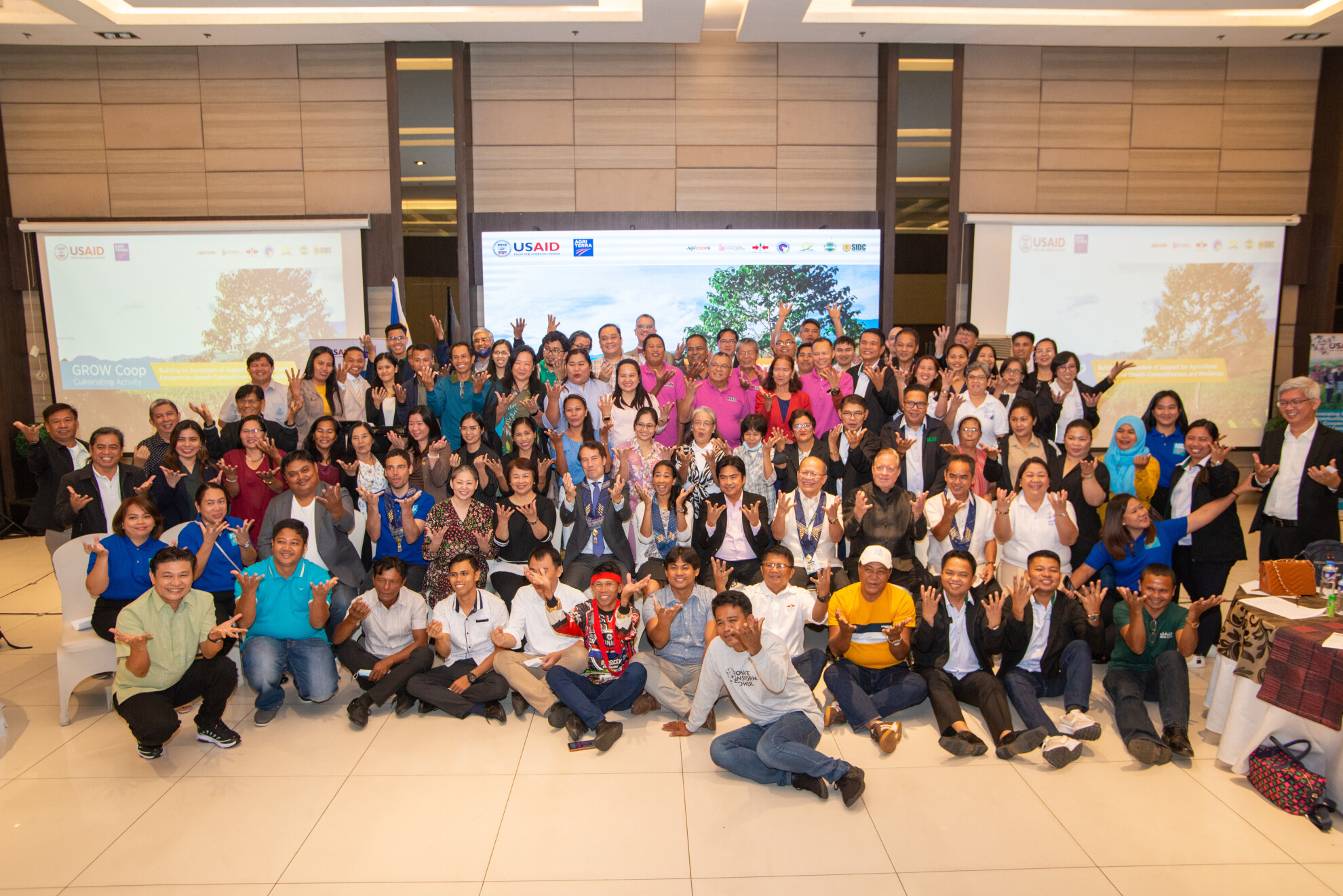Different models of developing agricultural cooperatives
01-06-2023PHILIPPINES - As GROW Coop comes to an end, we are reminded to focus on the real benefits that cooperatives bring to their members and their communities in rural areas.
In the last 3 years, the GROW Coop project has harnessed the power of cooperative action to improve lives, strengthen communities and expand rural livelihood opportunities. The $2M United States Agency for International Development (USAID) funded project was implemented by Agriterra, which promotes rural development and sustainable agriculture in the Philippines. GROW Coop used a big sister, small brother approach, where established cooperative federations, primary cooperatives and private companies (also called Agricultural Cooperative Development Champions or ACDCs) capacitate and link micro, small and medium-sized cooperatives (also called Growth Oriented Agricultural Cooperatives or GOACs) in their expanding value chains.

The big sister ACDCs and their partner small brother GOACs were honoured during the GROW Coop Culminating Activity on 17 May 2023 in Quezon City wherein lessons learned and recommendations were shared, drawing from the experiences of the cooperatives and their different business models and value chains.
The event was attended by officials from USAID Washington DC/Philippines, the US Embassy, the US Department of Agriculture, the Dutch Embassy, the Canadian Embassy, government agencies such as the Department of Agriculture, Philippine Carabao Center and Cooperative Development Authority; private companies, banks, donors, academe and civil society.
Deputy Ambassador Richard van der Hum shared in his speech, "Cooperatives are important to the modernisation of the countryside and the empowerment of farmers. The long tradition of agricultural cooperatives in the Netherlands has resulted in transforming our economy and Dutch agri-landscape from smallholder farmers to efficient, high-tech and highly innovative mid-sized farms, which has made the Netherlands the second largest exporter of agricultural products in the world."
“This is a model with which we experimented and succeeded. We have heard that our partners will keep expanding this work to more cooperatives,” said USAID Deputy Mission Director Rebekah Eubanks.
The main results of the GROW Coop include: 7 ACDCs capacitated as big sisters, 38 cooperatives strengthened, 10,900 members directly benefitted, 27 purchase agreements fulfilled and $3.7M non-donor investments leveraged.
Chief of the Party, Jun Virola said, “The experience (in GROW Coop) has shown us that we can build an ecosystem of support for agricultural cooperative development. We integrated capacity building in the value chain through the big sister, small brother approach, where real business transactions happen and results were measurable. And we did this through different models by bringing into our project different types of organisations: federations, primary cooperatives, and private companies. Each type of organisation brought its own set of peculiarities that we could learn from.”
Other highlights of the event were the presentation of the Agricultural Cooperative Development Agenda (ACDA) and the Agri Coop Bill. While a Memorandum of Agreement between Agriterra Philippines and AgriCOOPh Federation seals the spin-off of a Cooperative Resilience Mechanism (CRM) unit to be anchored under the federation. The participants also signed the commitment board in support of the two initiatives created under GROW Coop.

